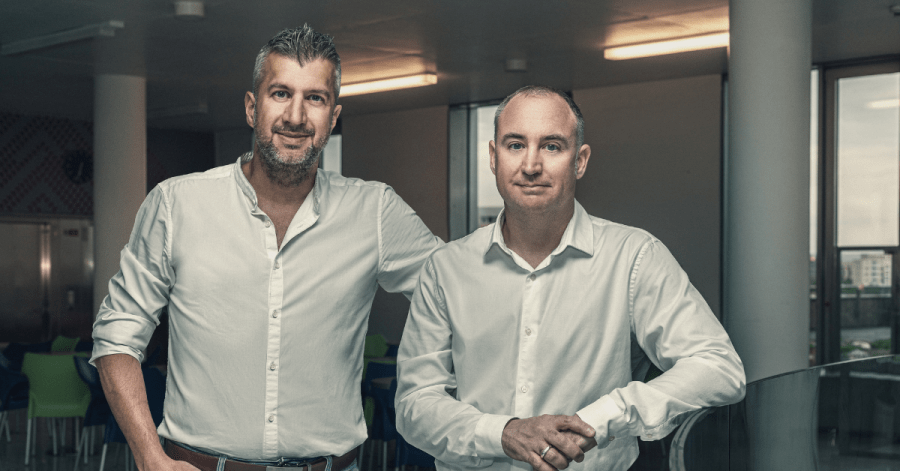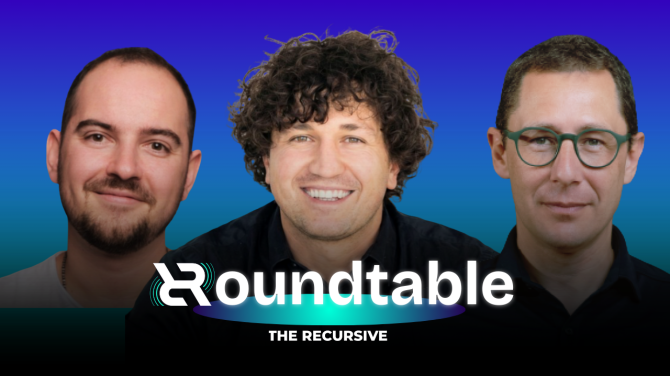- The cardiac home monitoring startup Kardi AI closes a €350K pre-seed round led by BrightCap Ventures with the participation of the Czech angel syndicate, DEPO Ventures.
- The startup will establish its machine learning and artificial intelligence development team in Sofia, Bulgaria.
- Kardi AI will use the investment to deliver the product to the market starting with the Czech Republic, followed by an expansion to other markets.
Last August, neighbors Tomas Skala, a cardiologist doctor, and Stephen Burke, serial entrepreneur and Skala’s patient, were sitting on their porch on a warm evening and talking about how much of a pain it is to do the annual ECG examination with the bulky device called a Holter. “You have to schedule an appointment to go in the first place, then you have to come back to return the Holter, and wait for a third consultation with your doctor. Why can’t we do this with a wearable device and save everyone the headache,” asked Burke. And this is how the initial concept of Kardi AI, their wearable heart monitor device and home care app, was born.
After a couple of iterations, the concept proved to be sound. Today, Kardi AI announced the closing of their €350K pre-seed round led by BrightCap Ventures with the participation of the Czech angel syndicate, DEPO Ventures. The startup will establish its machine learning and artificial intelligence development team in Sofia, Bulgaria.
“Our long-term plan will generate several millions of euros in R&D investment in the Sofia market. This is completely aligned with the mission of BrightCap Ventures to facilitate the development of cutting-edge technology in Bulgaria. We now aim to deliver our product to the market starting with the Czech Republic, followed by an expansion to other markets. Healthcare has proven again and again to be a recession-proof industry, so it is a great time and a great place to be in MedTech,” Stephen Burke, co-founder, and CEO of Kardi AI, shares for The Recursive.
“Kardi AI helps people know what their heart condition is – without uncomfortable and expensive procedures while maintaining the high diagnostic value of the study. In addition, it works with cardiologists to facilitate their work, instead of trying to replace them which is an approach used by many competitors. We also had a prior relationship with the founders before the investment which is part of our investment theses, ” explains Georgi Mitov, Managing Partner at BrightCap Ventures.
Read more about the solution of Kardi AI in our interview with the two co-founders.
The connection between Kardi AI and Bulgaria
Burke shares he has been working in technology since 1996, living in the US, India, Paris, and the Czech Republic as part of various startup teams. On the other hand, Skala has been working as an arrhythmologist in a university hospital for 18 years.
Prior to co-founding the IT company Sciant (acquired by Sirma Group Holdings in 2021) in Sofia, Bulgaria in 2016, Burke was mainly working with startups. “The first remote developer who I worked with while still living in the US was a Bulgarian. Over the years he introduced me to other people in Sofia. So, later in around 2010, when I was working as CTO at a travel fintech company in Paris, we were looking to grow our technology team, and naturally, this led us to Bulgaria,” he remembers.
The quality and innovation-first mindset of local talent made a long-lasting impression on Burke. He continued to seek development talent in Bulgaria through subsequent technology ventures – one based in London and the other in Berlin.
“After the acquisition of Sciant, I was a little sad when I was leaving because I thought this might be the last time for a while that I am in Bulgaria. As I was already actively involved with Kardi AI, I reached out to Mitov, with whom we have worked before, to tell him more about the project. He showed interest in supporting us. Long story short, now machine learning and artificial intelligence are being developed in Sofia, and the rest of the development is happening in Prague,” says Burke.
How does Kardi AI work?
“Imagine you have some trouble that impresses as an arrhythmia. You go to your general practitioner (GP), who refers you to a cardiologist. He orders a Holter ECG, which may take as long as two months to be assigned. But then you don’t have any problems during monitoring. So, you repeat everything. And by the time you’re really in trouble, you don’t have any monitoring equipment available,” Tomas Skala, co-founder and Chief of medical and research at Kardi AI, explains.
And this is where Kardi AI comes with the possibility of unlimited ECG monitoring by the patient anywhere and anytime. Kardi AI combines an app that runs on AI and a Polar chest belt that can monitor its user’s heart at any time. The Polar chest belt is monitoring the user’s heart and the data is transmitted into the mobile app and streamed into the Cloud. The AI technology cleans the data and removes noise while the Neural network analyses the data and suggests a course of action that the user is able to see in the Kardi AI app in real-time. On the other end, the doctor can view the summarized ECG data and make a diagnosis that is based on long-term monitoring.
As Skala explains, the patient is able to start the measurement within seconds in case of sudden symptoms. He just puts the belt on, and presses a button on a phone, the belt is automatically connected, and everything is seamless. The patient is being measured and can press a button to note the time of symptoms. Once the measurement is ended by the patient, data is stored in the cloud, processed by AIs, and the whole ECG recording with all beats annotated can be seen and assessed by their doctor.
What comes next for ECG?
“Healthtech is one of the target verticals for BrightCap because we believe that there is still much to be done to have better health and healthcare. Technology allows us to collect and analyze data to arrive at accurate conclusions that we could not easily reach otherwise … or we can reach a very high cost or too late,” shares Mitov who as part of the BrightCap team is also an investor in Woom and CoLumbo.
Dr. Skala explains that right now they are working on the initial patient trial. Using the chest belt, they have measured 160 patients with different heart conditions in the cardiology department aiming at measuring over a million beats. All beats are annotated by hand by an expert cardiologist and validated by a second one so that the team can set a golden standard to which they can compare their AI analysis.
After Kardi AI establishes its machine learning and artificial intelligence development team in Sofia, Bulgaria, the startup will use the investment to deliver the product to the market starting with the Czech Republic, followed by an expansion to other markets.







